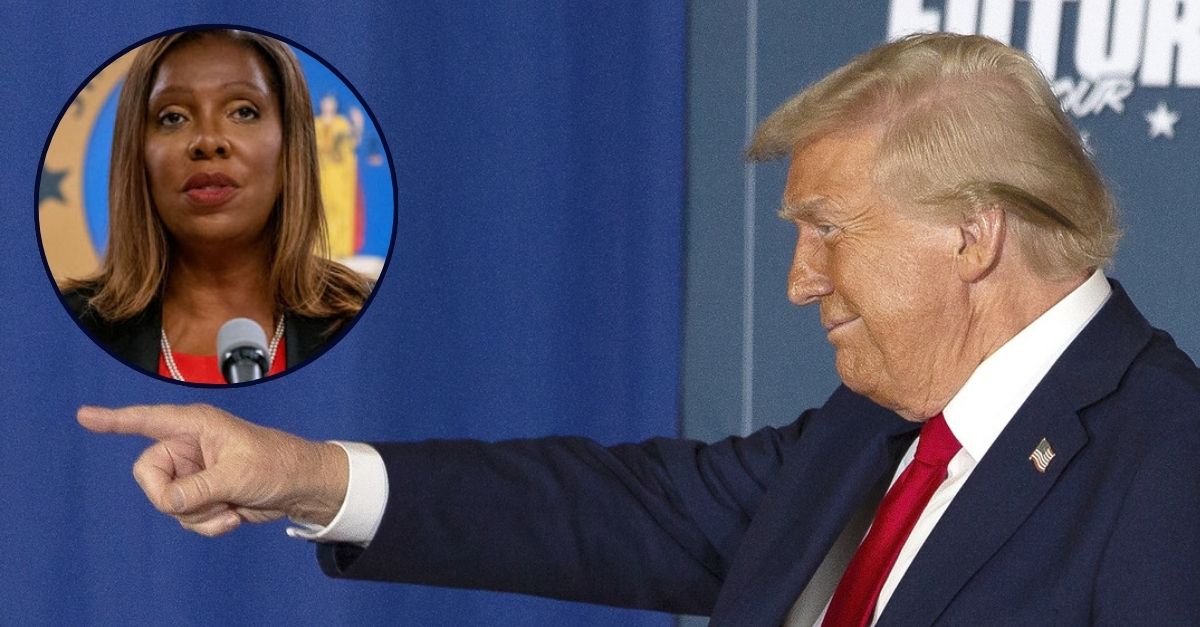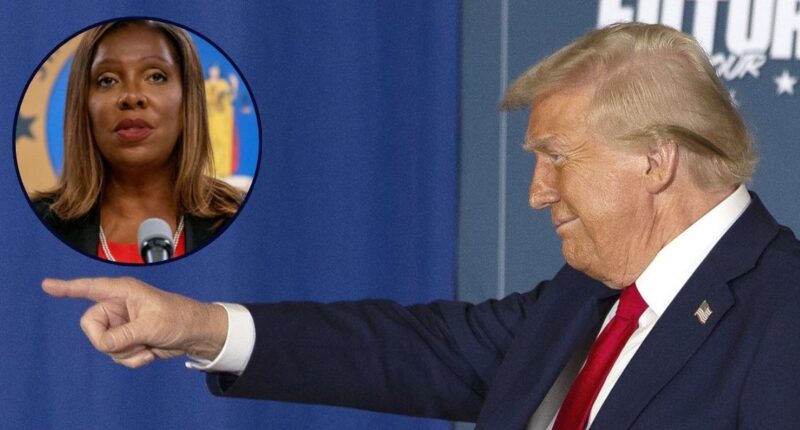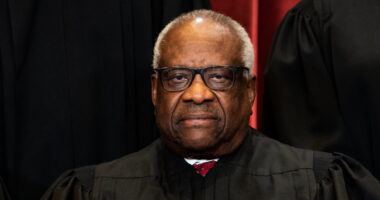
Letitia James, the New York Attorney General, addressed the media in a press conference on September 21, 2022. The topic of discussion was the financial fraud case involving former President Donald Trump and his family. The event took place in New York, as captured in an image by YUKI IWAMURA/AFP via Getty Images.
President-elect Donald Trump would like New York Attorney General Letitia James to drop the civil fraud case against him, his adult sons, and his namesake business empire in the Empire State.
In a four-page letter sent Wednesday, attorney D. John Sauer — the likely next solicitor general — framed the request as a potential fig leaf the Democratic Party prosecutor might offer the 45th and 47th president.
“In the aftermath of his historic election victory, President Trump has called for our Nation’s partisan strife to end, and for the contending factions to join forces for the greater good of the country,” the letter begins. “This call for unity extends to the legal onslaught against him and his family that permeated the most recent election cycle.”
“This case, like the many others against President Trump, is a flashpoint of national partisan division,” the letter reads. “You now have the singular opportunity to help cure this division.”
Most of those other cases, of course, have fallen to the wayside.
The two federal cases against Trump were dismissed outright — though for different reasons. The criminal prosecution in Fulton County, Georgia, is mired in appellate limbo and rests on unsure footing due to the November results. Even the criminal prosecution waged by the Manhattan District Attorney’s Office — alone among the unavoidably politically-tinged controversies to see a jury trial — is seemingly resting in the legal equivalent of a cryotherapy chamber.
Sauer’s letter takes stock of the post-election landscape — with the exception of the still-extant case in the Peach State.
“Other Democratic officials and prosecutors are abandoning their discredited lawsuits against President Trump,” the letter goes on. “This case warrants the same treatment.”
The civil fraud case dates to 2019 and is premised on sworn congressional testimony from Trump’s former friend and fixer, Michael Cohen. Under questioning by Rep. Alexandria Ocasio-Cortez, D-N.Y., Cohen claimed the Trump Organization inflated assets to insurance companies and that the company’s tax returns likely contained similar-but-different financial improprieties.
After a multi-year-long investigation, James and her office filed a $250 million civil fraud lawsuit against Trump, his children, and the Trump Organization in September 2022.
In September 2023, Trump, Donald Trump, Jr., Eric Trump, several of their top lieutenants, and various corporate organizations that comprise the Trump Organization were found to have committed fraud by a Manhattan judge on motions for summary judgment filed by James. The court also saw fit to issue costly cancellations of numerous licenses that allowed the Trumps to do business in New York State. Additionally, several of Trump’s attorneys were personally sanctioned $7,500 each for purportedly making frivolous arguments.
A bench trial — a trial without a jury — on the extent of liability was held between October 2023 and January of this year.
In February, New York Supreme Court Justice Arthur Engoron arrived at a civil penalty of some $354 million — somewhat shy of the $370 million that James had requested.
The case wore on.
On appeal, Trump and his business appear likely to fare much better.
During a hearing in late September, Trump’s arguments received a much warmer reception from the court than those essayed by James’ office. One judge on the New York Supreme Court’s Appellate Division, First Department said the “immense penalty” issued against the Trump Organization in the case was “troubling.”
In the letter, Sauer repeats many well-tread arguments — rubbished by Engoron — that seemingly held the day with the court of appeals. But he begins with one the appeals court appeared unmoved by.
“[T]he statute of limitations bars claims and liability,” the letter reads. “[T]he Supreme Court erroneously and disrespectfully applied the continuing-wrong doctrine to resuscitate long-defunct claims. This led to an indefensible judgment that directly violates the statute of limitations. The case should be dismissed on that basis alone.”
Other arguments rejected by Engoron received something not entirely unlike a bearhug of an embrace by the appellate court — including the idea that there were no victims in the case, that Mar-a-Lago had been drastically undervalued by the trial court, that Trump’s profits had been similarly undervalued, and that reliance certain accounting principals might inure to the defendant’s arguments.
Since then, the appeals court has not given any indication of what it might do — or even mulled-out-loud a timeline for their decision. Still, Trump and his business would like a denouement sooner than later.
So, now, the once-and-future president is looking for a straight flush — and framing it as an opportunity for James to avoid a potential embarrassment in the long-running case.
“As detailed in our appellate briefing, this action exceeds the New York Attorney General’s authority,” the letter goes on. “Stipulating to the vacatur of the judgment and the dismissal of the case would restore the NYAG’s power to its more legitimate scope.”
Sauer also, however, also argues that the case has to end — or will be more or less forestalled — because of the lead defendant’s status.
“President Trump will soon take office as the 47th President of the United States,” the letter continues. “Thus, the continued pendency of this lawsuit raises ‘grave and doubtful constitutional questions,’ and greatly disserves the national interest.”
The request to vacate the judgment also cites a longstanding U.S. Department of Justice internal rule that advises against pursuing criminal enforcement actions against sitting presidents.
The letter then continues in this vein, at length:
The federal Special Counsel’s office relied on this opinion yesterday in voluntarily dismissing the criminal case against President Trump. The same concerns arise from a civil fraud enforcement action, like this one, where six of the seven causes of action are based on alleged violations of criminal law. Indeed, it would be “perilous” to permit such an action to remain pending against a sitting President, because doing so “would risk imposing … burdens that would make it impossible for a President to effectively carry out his constitutional duties.”
“Likewise, the Supremacy Clause prevents state prosecutors from proceeding against the sitting President in any way,” the letter goes on.
Sauer then offers a lengthy series of references to mythologized presidents of the past — like Abraham Lincoln and John F. Kennedy — and quotes their paeans to national unity and accord.
This argument gives James something not entirely unlike the chance to vindicate herself in the eyes of history as-seen-by Trump.
“Invoking the same spirit of unity, we request that you stipulate to the vacatur of the Judgment and dismissal of this case with prejudice,” the letter concludes.











